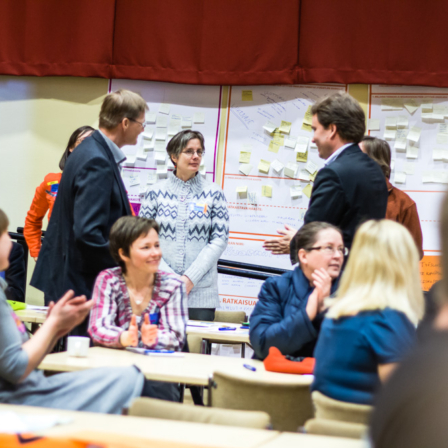The 21st century global context is increasingly uncertain, rapidly changing and complex. It confounds and disrupts previously coherent frameworks, provoking distress in a person’s external and internal worlds and the relationship between them. Therefore, action is needed to embrace ambiguity and unpredictability to cope with this transformation. Other transformational elements are the demand-side of innovation, human centric thinking and open society.
Demand-oriented and demand-creating technological and social innovations will gain a premium in the future because they can solve the science and real life ‘chasm’. Policy makers will have to focus on the changing nature of demand and, hence, the individual well-being from which it stems.
The user-centric perspective will be outdated because it is a too narrow view of human beings, their needs, contexts and practices. A new, more holistic human-centric perspective will offer huge value-creation opportunities. Technological research needs to be integrated with humanistic and social research in order to understand what technology can contribute in everyday life.
The human being is radically real, enactive, embodied and holistic: technologies for better life and well-being cannot effectively be actualized in the real world until naturalization and humanization of technology and the human subject in particular occurs. During modernity, the industrialisation of the human soul went far enough thanks to (social) science’s marginalisation of the lived human experience and the creative human impulse. Academe must develop a more sensitive ethic, recognizing the embodied unity of humanity, nature and technology, if it is to claim relevance in our shared transitional era.
Open society is based on open markets, open innovation and open data. In a complex and human centric world public institutions – especially – should change their role in society from a controlling to a more a enabling role. This is possible with new co-creation processes, tools and with open data.
The article is originally published in the Open Innovation Newsletter No. 26 – May 2012

















Recommended
Have some more.